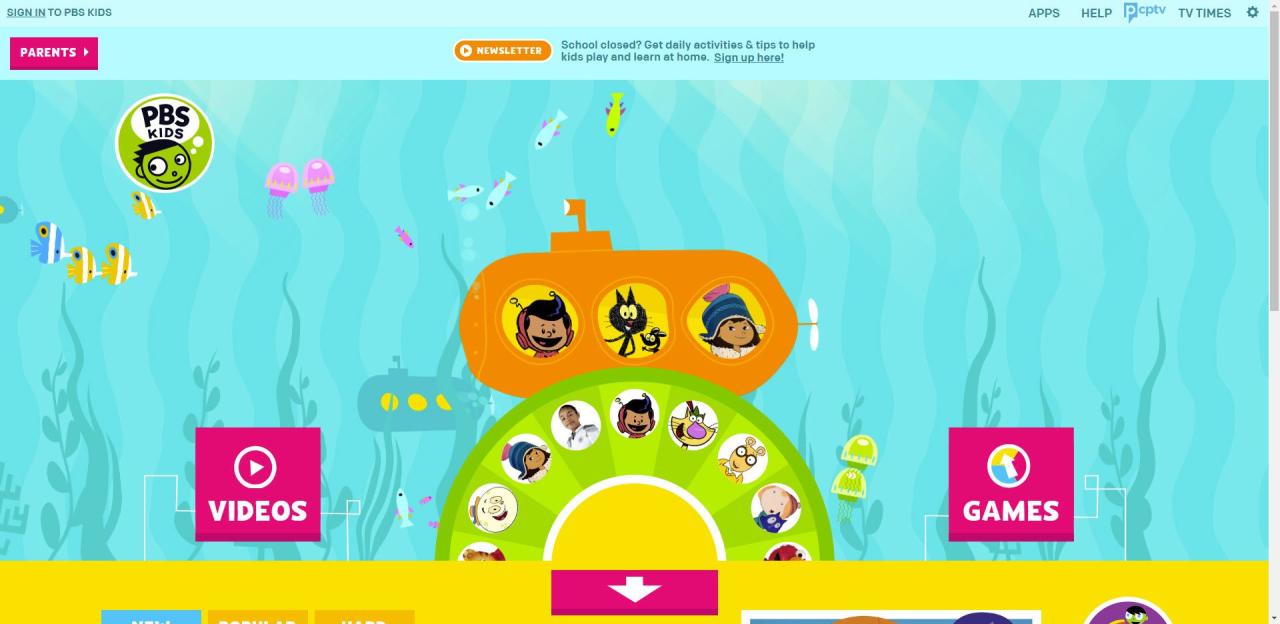How PBS Kids Apps Make Learning Fun for Preschoolers is a pivotal topic in early childhood education, showcasing how digital platforms can enhance learning experiences for young minds. These apps are designed to engage preschoolers through interactive games and educational content that align with developmental milestones. By leveraging familiar characters and playful narratives, PBS Kids Apps create an environment where children not only learn but do so in a joyful and memorable way.
The apps incorporate various learning strategies that cater to different learning styles, ensuring that all children can benefit from the educational resources available. With a focus on subjects such as math, reading, and social skills, these applications offer a comprehensive approach to early learning. As technology becomes increasingly integrated into our daily lives, PBS Kids Apps stand out as a valuable resource for parents and educators aiming to foster a love for learning in preschool-aged children.
In recent years, the intersection of technology, education, and societal changes has prompted an evolution in the way we understand and implement learning processes. The rapid advancement of digital technologies has transformed traditional pedagogical approaches, leading to the emergence of innovative educational frameworks. One of the most significant transformations has been the integration of online learning platforms, which have redefined accessibility, engagement, and effectiveness in education.The concept of online learning, often referred to as e-learning, encompasses a range of educational practices facilitated through digital resources.
This mode of learning has gained traction due to its flexibility, allowing learners to access educational materials and engage with instructors from virtually anywhere in the world. According to a report by the Online Learning Consortium, approximately 33.1% of higher education students in the United States were enrolled in at least one online course in 2020, highlighting a growing trend towards digital education.One of the primary advantages of online learning is its accessibility.
E-learning platforms offer a wide array of courses and programs that can be accessed by individuals regardless of their geographical location. This democratization of education enables learners from diverse backgrounds, including those in remote or underserved areas, to pursue their educational goals. Additionally, online courses often provide asynchronous learning options, allowing students to learn at their own pace, which can be particularly beneficial for adult learners who may have work or family commitments.However, the shift towards online education also presents significant challenges.
One major concern is the quality of education delivered through online platforms. Critics argue that the lack of face-to-face interaction can impede the development of critical social skills and reduce student engagement. To address these concerns, many e-learning programs have incorporated interactive elements, such as discussion forums, video conferencing, and collaborative projects, to foster a sense of community and enhance the learning experience.Moreover, the effectiveness of online learning is contingent upon the development of robust pedagogical strategies that leverage technology to facilitate meaningful learning experiences.

Research indicates that a well-designed online course can be as effective as traditional classroom instruction. For instance, a meta-analysis conducted by the U.S. Department of Education found that students in online learning conditions performed better, on average, than those receiving face-to-face instruction. This finding underscores the importance of employing evidence-based teaching practices that are adaptable to the online environment.The evolution of online learning has also sparked conversations about the role of artificial intelligence (AI) and machine learning in education.
AI-driven technologies have the potential to personalize learning experiences by analyzing individual student data and tailoring content to meet their unique needs. For example, adaptive learning platforms can assess a learner’s progress and modify the curriculum accordingly, ensuring that students receive the appropriate level of challenge and support. This personalized approach can lead to improved learning outcomes and increased student satisfaction.Another noteworthy trend in the realm of education technology is the rise of Massive Open Online Courses (MOOCs).
MOOCs are designed to accommodate an unlimited number of participants and often feature contributions from top universities and institutions worldwide. These courses have made knowledge accessible to millions, allowing learners from all walks of life to engage with high-quality content. However, despite their potential, MOOCs have faced criticism regarding completion rates, which tend to be relatively low. This raises questions about the effectiveness of these courses in fostering sustained learning and knowledge retention.To enhance the success of MOOCs and similar online learning initiatives, it is crucial to implement strategies that promote student engagement and motivation.
Research has shown that incorporating gamification elements—such as badges, leaderboards, and rewards—can significantly enhance student involvement and retention. By creating a more engaging and interactive learning experience, educators can encourage learners to remain committed to their studies.Furthermore, the COVID-19 pandemic has accelerated the adoption of online learning, compelling educational institutions to pivot quickly to remote instruction. This unprecedented shift has brought to light both the strengths and weaknesses of online education.
While many educators successfully transitioned to digital platforms, others faced challenges related to technology access, digital literacy, and the effectiveness of remote teaching strategies. As a result, the pandemic has sparked ongoing discussions about the future of education and the need for systemic changes to support both educators and learners in the digital age.Looking ahead, the future of education will likely be characterized by a blended learning model that combines traditional classroom instruction with online elements.
This hybrid approach offers the benefits of both modalities, providing students with the flexibility and accessibility of online learning while maintaining the interpersonal interactions and hands-on experiences associated with in-person education. By integrating technology into the classroom, educators can create a more dynamic and inclusive learning environment that meets the diverse needs of today’s learners.In conclusion, the evolution of online learning reflects broader societal changes driven by technological advancements and shifting educational paradigms.
While online education offers numerous advantages, it also presents challenges that must be addressed to ensure its effectiveness and accessibility. As we continue to explore the potential of educational technology, it is essential to remain mindful of the importance of pedagogical strategies that foster engagement and promote meaningful learning experiences. By embracing innovation and prioritizing student-centered approaches, we can pave the way for a more equitable and effective education system that prepares learners for the complexities of the modern world.





